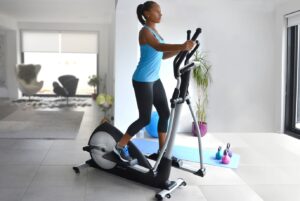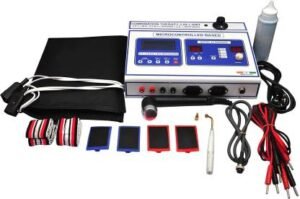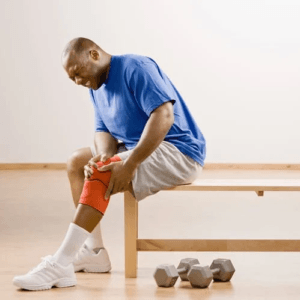Understanding Knee Arthritis and Pain
Knee pain due to arthritis is a common condition affecting millions worldwide. Arthritis in the knee occurs when the cartilage protecting the knee joint wears down, leading to pain, stiffness, swelling, and reduced mobility. Common knee arthritis symptoms include aching, swelling, limited range of motion, and discomfort during daily activities. Proper diagnosis and early treatment for knee pain are crucial to prevent progression. Lifestyle modifications, physical therapy, and targeted exercises for knee pain play essential roles in managing this condition effectively. Understanding the underlying causes and triggers helps patients take proactive measures to maintain joint health and function.
Knee Arthritis Symptoms and Common Causes
Knee pain is often accompanied by swelling, stiffness, and reduced mobility, which are typical knee arthritis symptoms. Common causes include aging, previous joint injuries, repetitive stress, obesity, and genetic predisposition. Early recognition of these knee pain reasons in female and male patients is crucial for timely treatment of knee pain and better outcomes.
Who Is at Risk of Developing Knee Arthritis?
Women, older adults, athletes, and individuals with prior knee injuries are at higher risk of arthritis in the knee. Excess body weight, joint overuse, and a sedentary lifestyle further increase vulnerability. Identifying those at risk enables preventive measures, including targeted exercises for knee pain and early treatment for knee pain, reducing long-term joint damage.
Top Do’s for Managing Knee Pain Due to Arthritis
Managing knee pain effectively involves adopting positive habits that support joint health. Regular low-impact exercises for knee pain, such as swimming, cycling, or walking, strengthen muscles around the joint and reduce stiffness. Maintaining a healthy weight minimizes pressure on the knee, preventing worsening of arthritis in the knee. Applying cold or heat therapy can relieve inflammation and discomfort. Using supportive footwear and avoiding prolonged standing helps reduce joint strain. Incorporating stretching routines improves flexibility and enhances blood flow. Consistent adherence to treatment for knee pain prescribed by healthcare professionals ensures long-term relief and improves overall quality of life.
Low-Impact Exercises for Knee Pain Relief

Walking on Level Ground
Walking is an excellent way to maintain joint mobility and strengthen the surrounding muscles. However, individuals with knee arthritis should choose level ground for their walks. Uneven terrain can increase joint strain and pain. A study published in the Arthritis & Rheumatology journal (2018) reported that walking on level surfaces is associated with less pain and functional limitations in people with knee osteoarthritis.

Quadriceps and Hamstring Strengthening
Strengthening the quadriceps muscles can provide better support to the knee joint and reduce pain. Exercises like leg extensions, leg presses, and squats can help strengthen the quadriceps. A study in the Journal of Orthopaedic Research (2013) revealed that quadriceps strengthening exercises were effective in reducing pain and improving function in knee osteoarthritis patients.

Maintain Healthy Weight and Nutrition
Maintaining a healthy weight is crucial for managing knee pain related to arthritis. Excess body weight places added stress on the knee joint, exacerbating pain and inflammation. A study published in the American Journal of Epidemiology (2018) found that weight loss can reduce the risk of developing knee osteoarthritis. Additionally, a balanced diet rich in anti-inflammatory foods such as fruits, vegetables, and omega-3 fatty acids can help manage inflammation and pain.

Active Lifestyle
Staying active is essential for knee arthritis management. Regular physical activity can help maintain joint mobility and reduce stiffness. The Arthritis Foundation recommends a combination of aerobic, strength, and flexibility exercises to keep your joints in good condition.

Choose Supportive Footwear for Arthritis
Wearing the right shoes can make a significant difference in managing knee pain. Shoes with proper arch support and cushioning can help distribute weight more evenly and reduce the strain on the knees. A study published in the Journal of Foot and Ankle Research (2017) emphasized the importance of appropriate footwear in alleviating knee arthritis symptoms and knee pain in osteoarthritis patients.

Regenerative Treatments for Knee Arthritis (PRP, Stem Cells)
For individuals with moderate osteoarthritis (up to Stage 3), regenerative therapies like stem cell therapy, Platelet-Rich Plasma (PRP) injections, and prolotherapy may offer treatment for knee pain and slow down the progression of the disease. These therapies have shown promising results in several studies, such as one published in the American Journal of Sports Medicine (2017), demonstrating improvements in knee arthritis symptoms and overall knee pain relief.

Supplements for Joint Health: Collagen, Glucosamine
Supplements like collagen and glucosamine are believed to support joint health. Research published in the Journal of Osteoarthritis and Cartilage (2020) has shown that collagen and glucosamine supplements may help reduce pain and improve function in individuals with knee osteoarthritis. Consult with a healthcare professional before starting any new supplements.

Consult a Knee Pain Specialist

Utilize Physical Therapy for Arthritis Relief
Physical therapy is a vital component of knee pain and knee arthritis symptoms management. Modalities such as ultrasound, Interferential Therapy (IFT), and Transcutaneous Electrical Nerve Stimulation (TENS) can be useful in reducing knee pain and improving joint mobility. Consult with a skilled physiotherapist to receive proper guidance on the most effective exercises for knee pain and modalities for your condition.

Key Don’ts for Knee Arthritis Pain Management
Avoiding certain behaviors is equally important in controlling knee pain. High-impact activities, such as running or jumping, can aggravate arthritis in the knee and accelerate cartilage wear. Ignoring pain or delaying medical consultation may worsen knee arthritis symptoms. Overusing the affected joint without proper rest or support can lead to flare-ups. Improper posture during daily activities or exercises may strain the knee further. Avoid sudden weight gain, as excess load increases joint stress. Skipping prescribed exercises for knee pain or medications reduces treatment effectiveness. Awareness of these don’ts ensures safer management and reduces the risk of long-term damage.
Avoid Climbing Too Many Stairs

Avoid Sitting Cross-Legged for Long Periods
Sitting cross-legged for extended periods can place undue stress on the knee joint. Prolonged cross-legged sitting can lead to stiffness and discomfort. A study in the Journal of Physical Therapy Science (2016) cautioned against maintaining such positions, particularly for individuals with knee arthritis.

Don’t Do High-Impact Exercises
While exercise is essential, intense impact and knee-loading exercises like treadmill running can be detrimental for those with knee pain due to arthritis. These activities can exacerbate pain and accelerate joint wear and tear. Choose low-impact exercises like swimming, cycling, or elliptical training, as recommended in the American College of Rheumatology guidelines.

Don’t Ignore Consistent Knee Pain
Persistent knee pain should not be ignored, as it may indicate underlying arthritis in the knee or other joint issues. Early intervention and consultation with a specialist can prevent worsening symptoms and help guide effective treatment for knee pain.

Don’t Rely on Oil Massages“
While massages can provide temporary relief, oil massages alone won’t address the underlying causes of knee arthritis. A study in the Journal of Alternative and Complementary Medicine (2018) noted that massages can be beneficial for pain relief, but they should be part of a comprehensive treatment plan rather than the sole solution.

Limit Long-Term Painkiller Use
Over-the-counter painkillers may provide temporary relief, but long-term use can have harmful effects on the gastric lining and other organ s
ystems. According to a study published in the Journal of Gastroenterology (2019), excessive painkiller use can lead to gastric problems. Consult a healthcare professional for safer and more effective pain management options.

Don’t Self-Medicate or Delay Treatment
Self-diagnosis and self-treatment can lead to incorrect approaches and worsen knee pain. Arthritis in the knee is a complex condition that requires professional assessment and management. Seek expert advice from a rheumatologist or orthopedic specialist to tailor a suitable treatment plan for knee pain for your specific needs.

Don’t Rely on Magical Foods that Heal Arthritis
While nutrition plays a crucial role in arthritis management, there are no magical foods that can cure arthritis. A review in the Journal of Rheumatology (2017) emphasized that dietary modifications can help reduce inflammation and improve symptoms, but they should be part of a holistic approach alongside medical treatment.

Don’t Squat
Squatting puts excessive strain on the knee joints and can lead to increased pain and stiffness. Avoid deep squats or heavy lifting activities that require squatting. Instead, opt for alternative methods for picking up items or use assistance devices when needed.

Avoid Prolonged Squatting or Kneeling
Prolonged squatting or kneeling can increase stress on the knee joint, exacerbating knee pain and accelerating arthritis in the knee. Limiting these activities supports joint health and complements ongoing treatment for knee pain strategies.

When Should You Seek Treatment for Knee Arthritis?
Seeking timely treatment for knee pain is essential for preventing the progression of arthritis in the knee. Consult a healthcare professional if you experience persistent swelling, sharp pain, or difficulty walking. Worsening knee arthritis symptoms, including stiffness, locking, or deformity, indicate the need for evaluation. Early intervention allows conservative therapies like physical therapy, exercises for knee pain, or injection-based treatments to work effectively. Delaying care may necessitate surgical intervention such as joint replacement. Regular monitoring, timely consultations, and adherence to prescribed treatment for knee pain help patients maintain mobility, reduce pain, and improve quality of life.
Why Choose Alleviate Pain Clinic for Knee Arthritis Care?
Alleviate Pain Clinic specializes in advanced treatment for knee pain, offering a comprehensive approach to arthritis in the knee. Our team of experts evaluates each patient’s unique condition, recommending personalized management plans that include physical therapy, medication, regenerative injections, and guided exercises for knee pain. Early intervention helps address knee arthritis symptoms effectively, reducing the need for invasive procedures. Our focus on patient education, lifestyle counseling, and rehabilitation ensures sustainable relief. Choosing Alleviate Pain Clinic provides access to modern techniques, expert guidance, and continuous support for managing knee pain and improving long-term joint health.
Conclusion
Knee pain due to arthritis can be challenging, but with the right approach, it is manageable. We at Alleviate Pain Clinic help patients with knee pain understand the dos and don’ts outlined in this blog. This helps individuals with knee arthritis make informed choices and improve their quality of life. Remember that each person’s condition is unique, so it’s essential to work closely with healthcare professionals to develop a tailored management plan that suits your needs. By following these dos and don’ts and staying committed to your health, you can effectively manage knee pain and maintain an active, fulfilling life despite arthritis.
Frequently Asked Questions on Knee Arthritis Pain
Early symptoms of knee arthritis include mild joint pain, stiffness, especially in the morning, swelling, and occasional creaking or grinding sensations. Women may notice difficulty in activities like climbing stairs. Early recognition allows timely treatment for knee pain and helps prevent further joint damage.
Improper or high-impact exercise can worsen knee arthritis symptoms, causing increased pain or swelling. Low-impact activities like swimming, cycling, and targeted exercises for knee pain can improve joint mobility and strength without exacerbating knee pain. Always consult a healthcare provider before starting an exercise routine.
Effective treatment for knee pain includes physical therapy, low-impact exercises for knee pain, anti-inflammatory medications, regenerative therapies like PRP, prolotherapy, and in severe cases, surgical options. A combination of lifestyle adjustments and professional care helps manage knee arthritis symptoms effectively.
Supplements such as glucosamine may provide mild relief for knee arthritis symptoms, supporting cartilage health and joint function. While not a cure, they can complement treatment for knee pain when combined with physiotherapy, lifestyle modifications, and medical guidance. Effectiveness varies among individuals.
Consult a specialist if knee pain persists beyond a few weeks, limits mobility, or is accompanied by swelling, redness, or joint instability. Early assessment ensures proper treatment for knee pain and prevents progression of arthritis in the knee or related complications.






